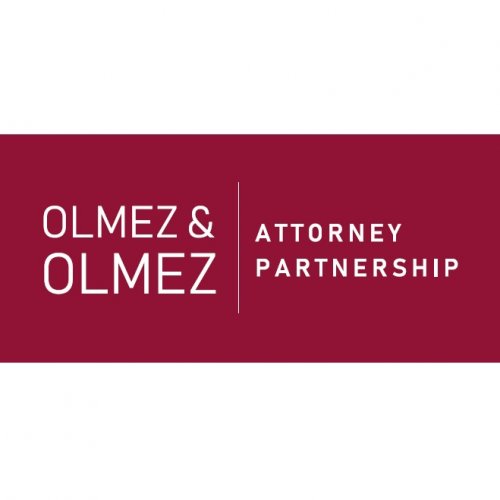Best Financial Services Regulation Lawyers in Istanbul
Share your needs with us, get contacted by law firms.
Free. Takes 2 min.
List of the best lawyers in Istanbul, Turkey
About Financial Services Regulation Law in Istanbul, Turkey
Financial services regulation in Istanbul, Turkey, is a critical area of law encompassing the comprehensive governance of financial institutions and capital markets. The regulatory framework aims to ensure stability, transparency, and integrity within the financial system by dictating how banks, insurers, stock exchanges, and other financial entities operate. Entities in Istanbul must comply with Turkey’s Banking Regulation and Supervision Agency (BRSA) and the Capital Markets Board (CMB) requirements, among others. These organizations help maintain financial stability, protect investors, and uphold economic integrity across the country.
Why You May Need a Lawyer
There are numerous situations where obtaining legal advice from a financial services regulation lawyer in Istanbul may be necessary. Businesses may need guidance on obtaining licensing and compliance with local financial regulations. Individuals and companies facing audits or investigations from regulatory authorities will also benefit from legal representation. Additionally, navigating the complexities of mergers and acquisitions, especially those with financial entities, requires expert legal knowledge to ensure compliance with financial laws. Moreover, legal experts can assist in drafting contracts, managing disputes, and providing risk assessments to prevent future legal issues.
Local Laws Overview
The local laws governing financial services in Istanbul, Turkey, revolve around key legislation and regulatory bodies such as the Banking Law, Capital Markets Law, and the regulations set forth by the BRSA and CMB. Key elements of these laws include licensing requirements for financial entities, capital adequacy standards, consumer protection regulations, anti-money laundering (AML) procedures, and reporting and disclosure obligations. These rules are designed to manage systemic risks, protect investors, and foster a transparent financial environment.
Frequently Asked Questions
What is the role of the BRSA in financial regulation?
The Banking Regulation and Supervision Agency (BRSA) is responsible for overseeing the banking sector in Turkey. It ensures banks and other financial institutions operate soundly by enforcing laws related to regulatory compliance, risk management, and consumer protection.
How does the Capital Markets Board (CMB) affect financial services?
The Capital Markets Board (CMB) regulates the capital markets in Turkey, including securities exchanges and investment firms. It establishes rules for trading, disclosure, and investor protection to ensure market integrity and transparency.
What types of financial entities need a license in Turkey?
Various financial institutions need licenses, including banks, insurance companies, stock brokerages, leasing companies, and asset management firms. The BRSA and CMB set forth the specific requirements and oversee the licensing processes.
How are financial disputes typically resolved?
Financial disputes may be resolved through negotiation, mediation, arbitration, or litigation, depending on the circumstances. Legal assistance can help navigate these processes, ensuring compliance with local regulations and the protection of interests.
Are there specific regulations regarding fintech and digital banking?
Yes, Turkey has regulations that apply to fintech companies, especially in areas like digital payments, e-money firms, and online banking. These entities must comply with relevant BRSA and CMB rules and obtain necessary licenses.
What consumer protections are in place for financial services users?
Turkish law protects consumers in the financial sector through transparency requirements, dispute resolution mechanisms, and the oversight of unethical practices. Consumers have the right to clear information and fair treatment by financial providers.
What are the reporting obligations for financial institutions?
Financial institutions in Turkey are obligated to report their financial statements, risk assessments, and any suspicious activities to relevant authorities like the BRSA. Regular audits are mandatory to ensure compliance.
How does Turkey handle anti-money laundering (AML) obligations?
Turkey enforces stringent AML regulations requiring financial institutions to perform customer due diligence, monitor transactions, and report suspicious activities to relevant authorities. This is crucial for combating financial crimes.
Can foreign entities operate in the Turkish financial market?
Foreign entities can operate in Turkey, subject to compliance with local regulations and licensing requirements. They must adhere to government policies and operational guidelines set by the BRSA and CMB.
How are mergers and acquisitions in the financial sector regulated?
Mergers and acquisitions involving financial entities undergo scrutiny by the BRSA or CMB to ensure compliance with capital adequacy, competitiveness, and market stability standards. Legal guidance is essential to navigate these transactions effectively.
Additional Resources
For further assistance, you may consider consulting:
- The Banking Regulation and Supervision Agency (BRSA) for resources on banking laws and regulations.
- The Capital Markets Board (CMB) for information on securities and investment regulations.
- Turkish government financial services portals for general regulations and updates.
Next Steps
If you require legal assistance in the field of financial services regulation in Istanbul, consider the following steps:
1. Identify the specific legal issue or requirement you face.
2. Research and consult a lawyer specialized in Turkish financial services regulation.
3. Prepare related documents, evidence, and queries before seeking legal advice.
4. Discuss your situation openly with your lawyer to explore potential legal solutions and compliance strategies.
5. Evaluate the actions recommended by your legal consultant and ensure ongoing compliance with financial laws to prevent future complications.
Lawzana helps you find the best lawyers and law firms in Istanbul through a curated and pre-screened list of qualified legal professionals. Our platform offers rankings and detailed profiles of attorneys and law firms, allowing you to compare based on practice areas, including Financial Services Regulation, experience, and client feedback.
Each profile includes a description of the firm's areas of practice, client reviews, team members and partners, year of establishment, spoken languages, office locations, contact information, social media presence, and any published articles or resources. Most firms on our platform speak English and are experienced in both local and international legal matters.
Get a quote from top-rated law firms in Istanbul, Turkey — quickly, securely, and without unnecessary hassle.
Disclaimer:
The information provided on this page is for general informational purposes only and does not constitute legal advice. While we strive to ensure the accuracy and relevance of the content, legal information may change over time, and interpretations of the law can vary. You should always consult with a qualified legal professional for advice specific to your situation.
We disclaim all liability for actions taken or not taken based on the content of this page. If you believe any information is incorrect or outdated, please contact us, and we will review and update it where appropriate.

















